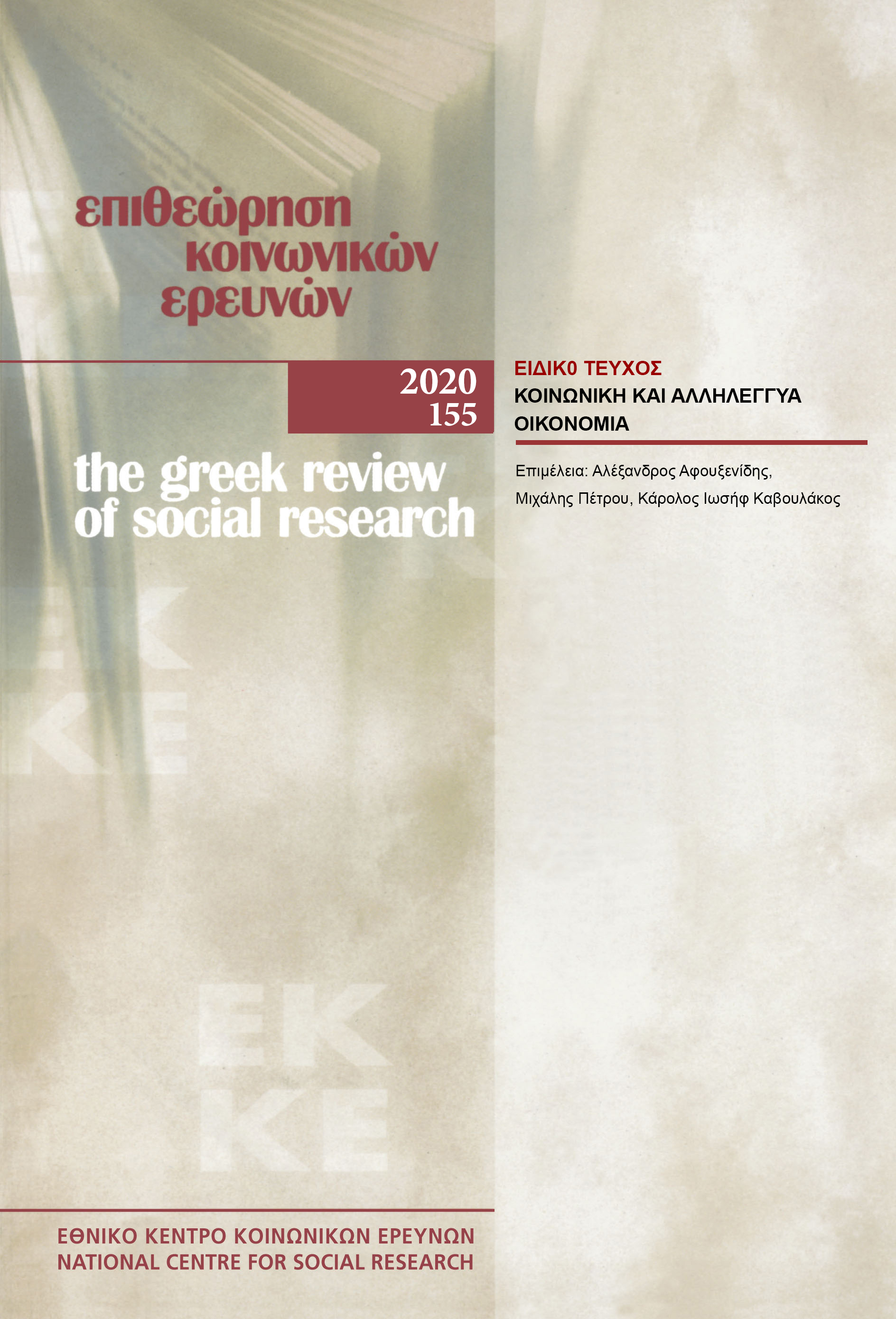Urban open spaces as commons: The case of the self-governed Navarinou park

Abstract
Creating commons in vacant, open, urban spaces constitutes an innovative solution for the sustainable management of these places and the mitigation of the environmental, economic and social burdens that urban dwellers face. The paper uses the self-governed Navarinou park as a case study, in order to discuss the issue, evaluate its experience and propose possible policies for successful such actions. In particular, it employs the SES methodological framework of the Ostromian approach to outline the Park as a commons institution and to explore its variables. It concludes that the Park constitutes a functional and credible institution, and as such an advisable intervention would be the recognition of collective rights and practices alongside the development of a framework that would allow such endeavors to thrive.
Article Details
- How to Cite
-
Arvanitidis, P. A., & Papagiannitsis, G. (2020). Urban open spaces as commons: The case of the self-governed Navarinou park. The Greek Review of Social Research, 155, 59–98. https://doi.org/10.12681/grsr.24825
- Section
- Articles

This work is licensed under a Creative Commons Attribution-NonCommercial 4.0 International License.
Authors who publish with this journal agree to the following terms:
- Authors retain copyright and grant the journal right of first publication with the work simultaneously licensed under a Creative Commons Attribution Non-Commercial License that allows others to share the work with an acknowledgement of the work's authorship and initial publication in this journal.
- Authors are able to enter into separate, additional contractual arrangements for the non-exclusive distribution of the journal's published version of the work (e.g. post it to an institutional repository or publish it in a book), with an acknowledgement of its initial publication in this journal.
- Authors are permitted and encouraged to post their work online (preferably in institutional repositories or on their website) prior to and during the submission process, as it can lead to productive exchanges, as well as earlier and greater citation of published work (See The Effect of Open Access).


